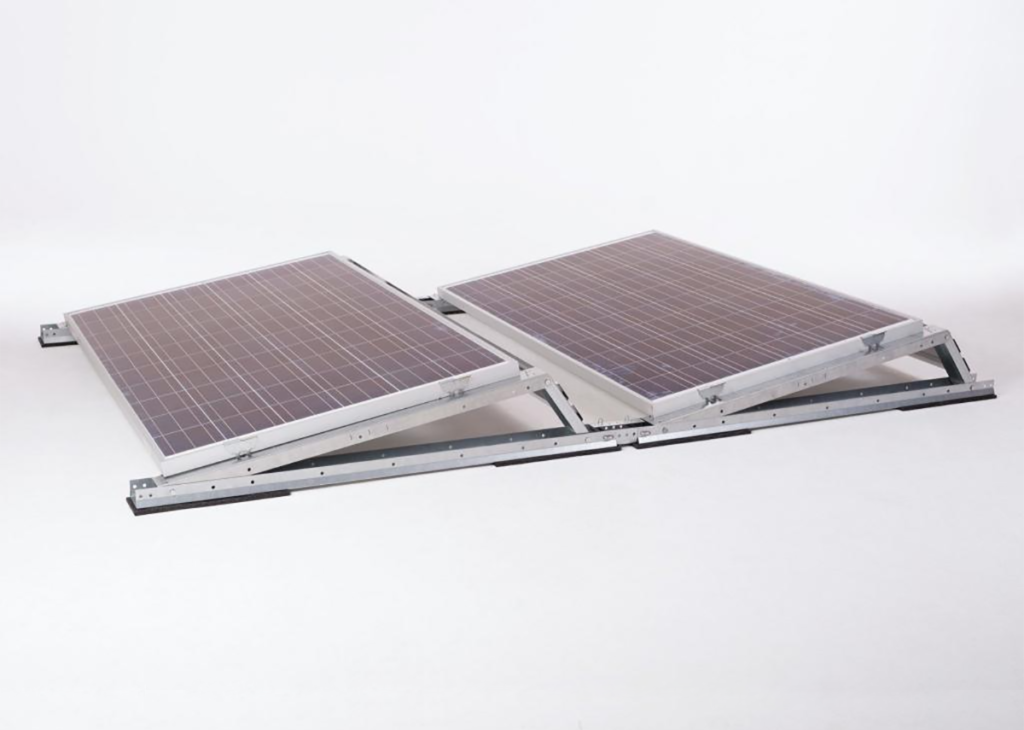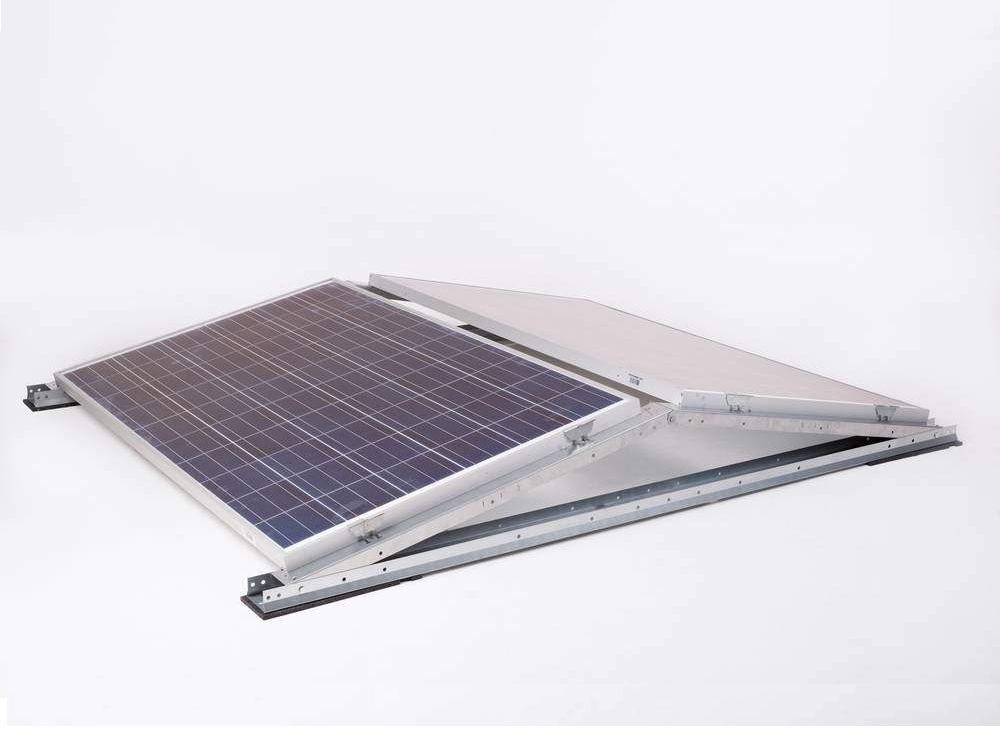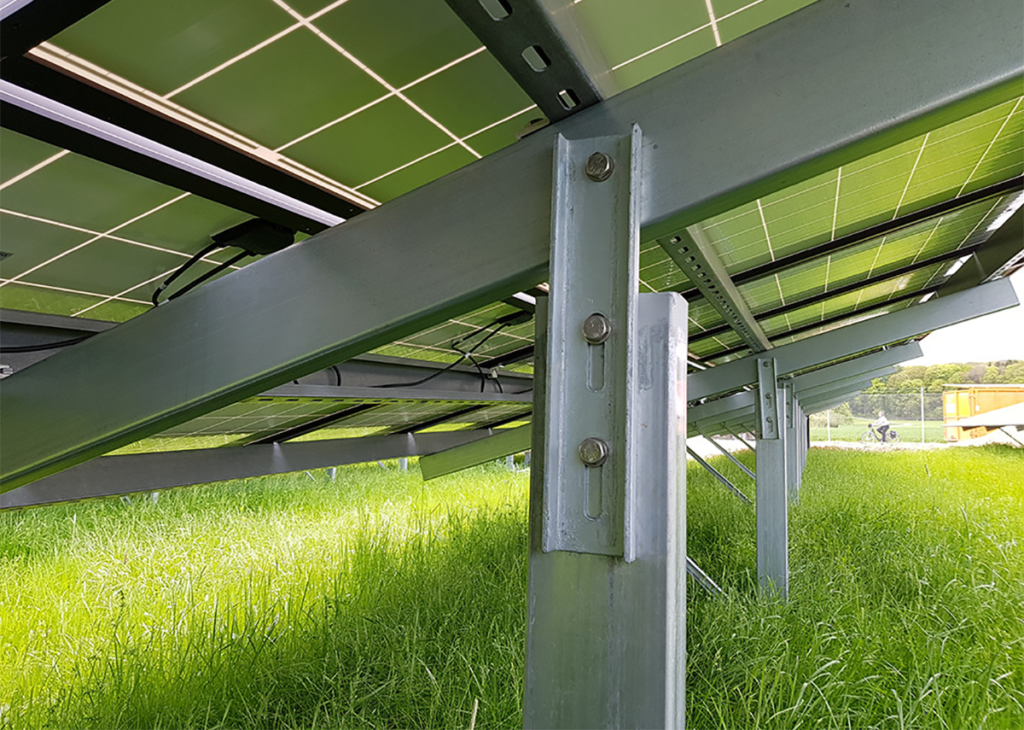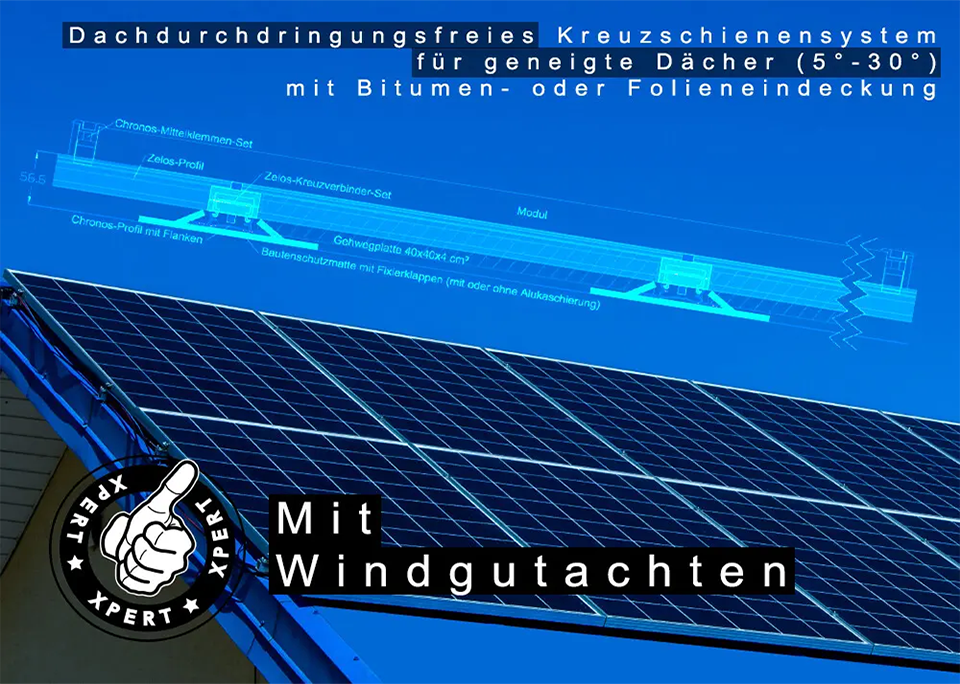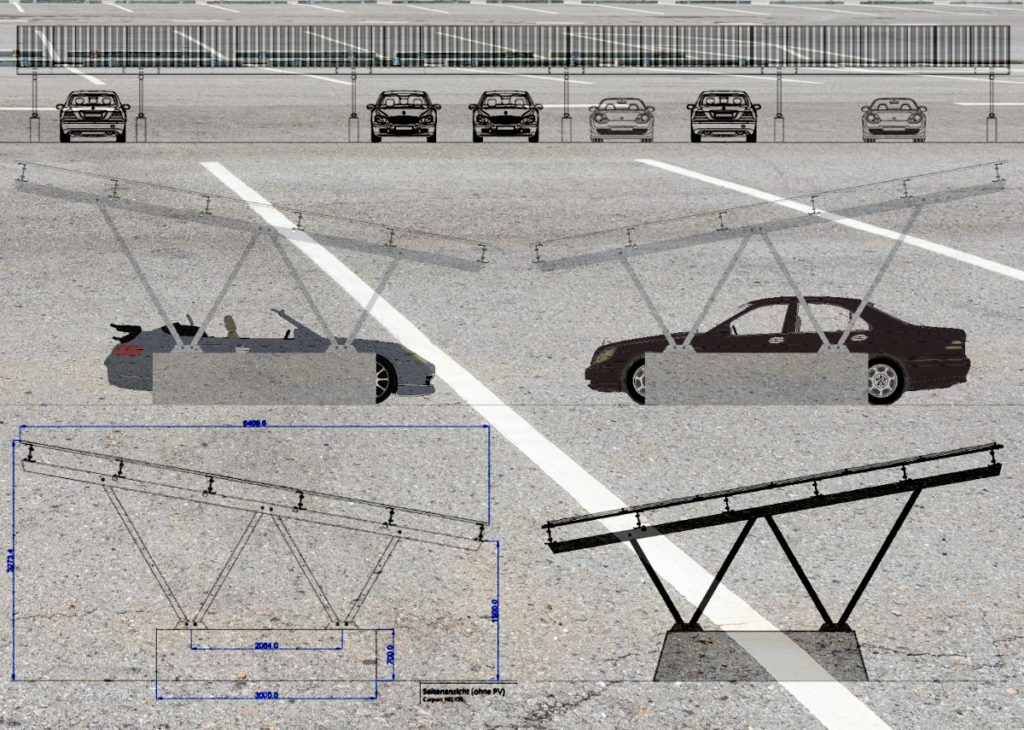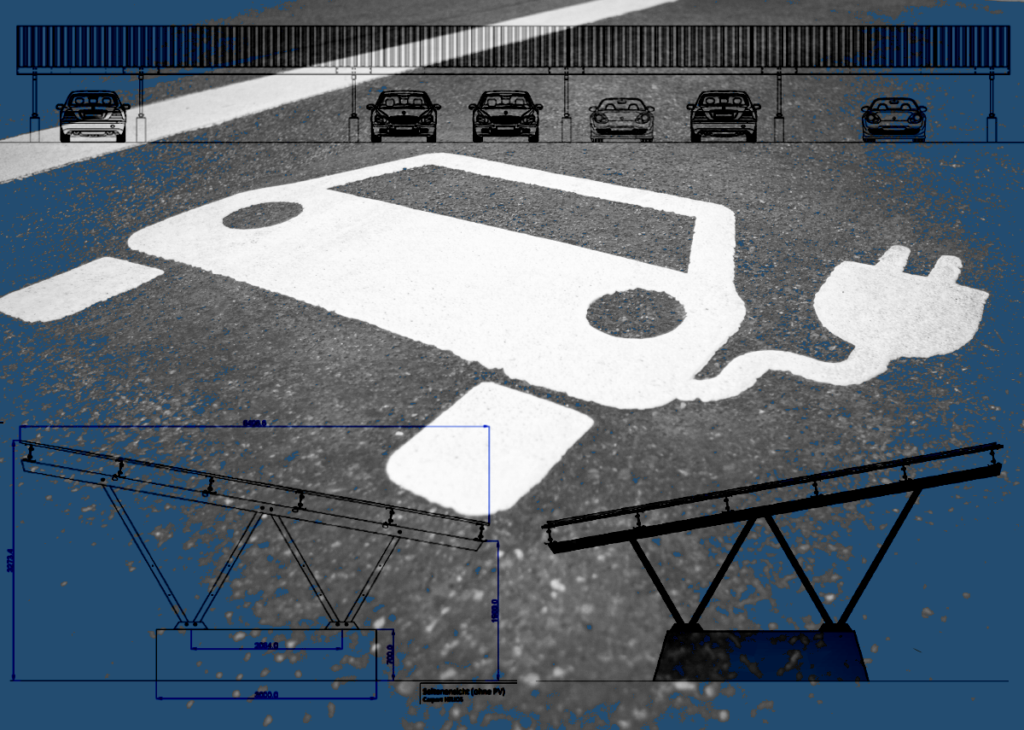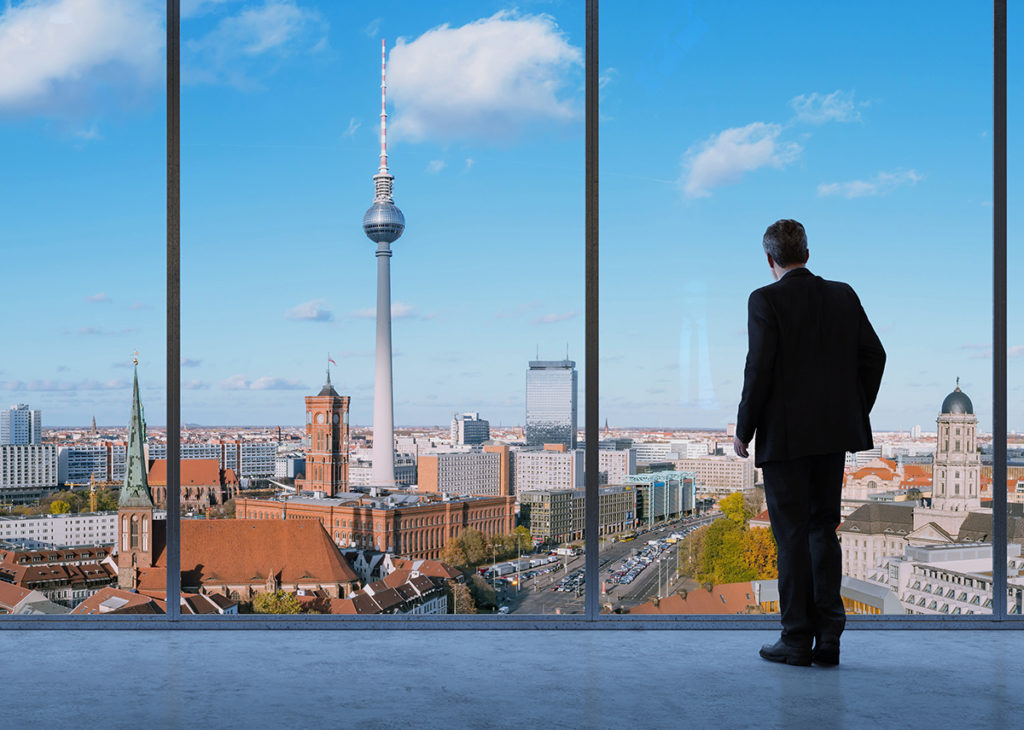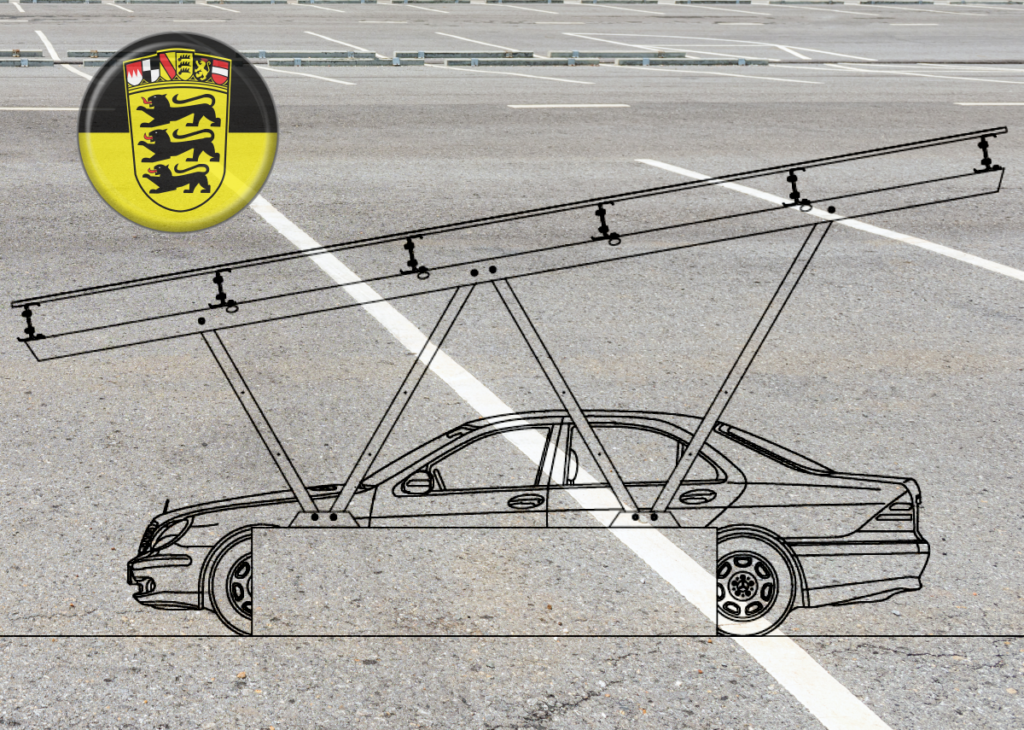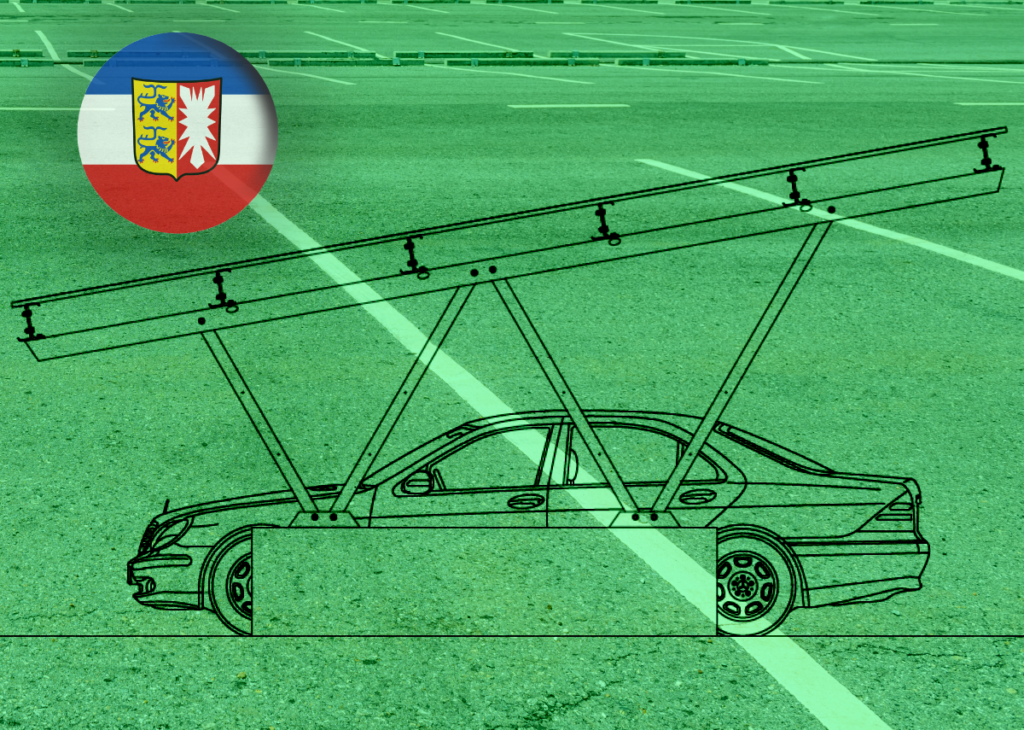Solar compulsory & solar carport compulsory in Germany for buildings and open parking spaces of a certain size
Language selection 📢
Published on: July 31, 2021 / update from: November 2, 2023 - Author: Konrad Wolfenstein
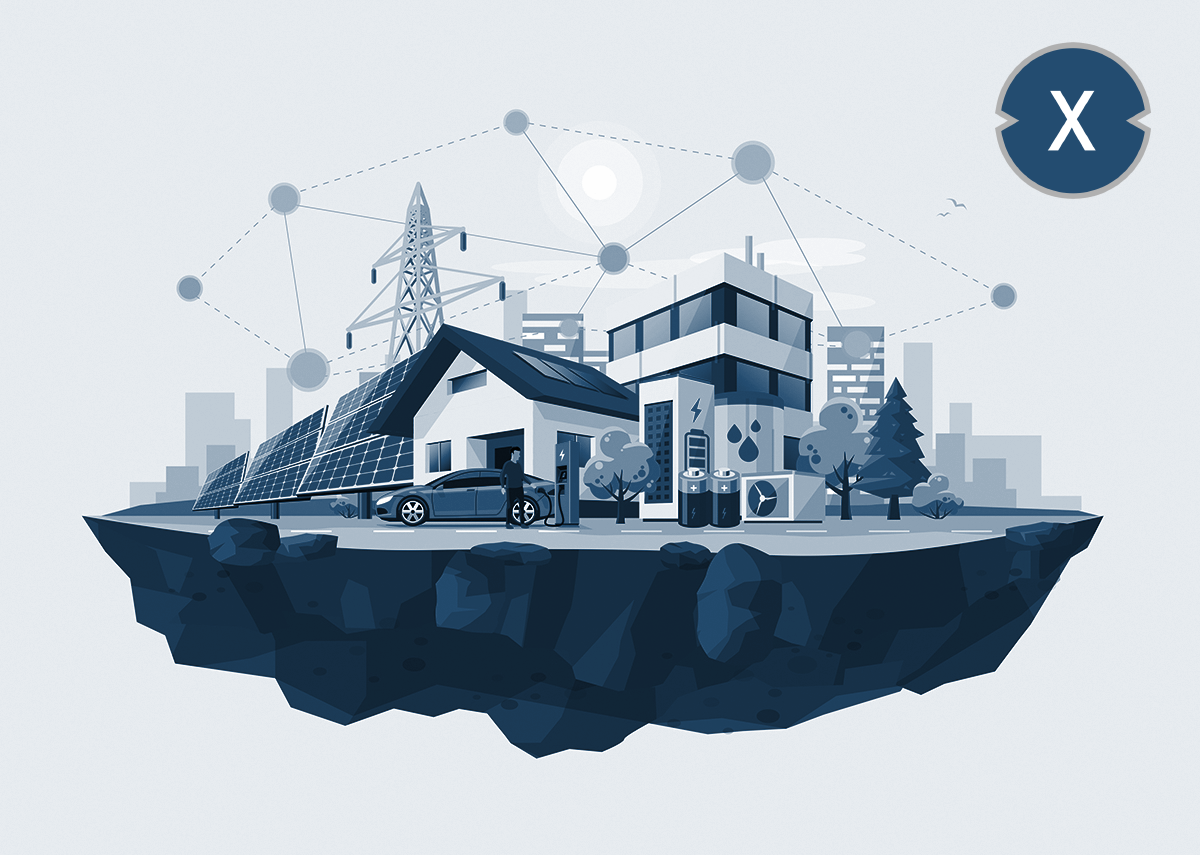
Solar compulsory and solar carport compulsory in Germany – Image: Xpert.Digital / petovarga|Shutterstock.com
Where there is already a solar obligation and where there is not - the current status
Baden-Württemberg
- From January 1, 2022, for new construction of non-residential buildings and for new construction of parking spaces with 35 spaces or more.
- From May 1, 2022 for new residential buildings.
- From January 1st, 2023 for basic roof renovations.
Berlin
From January 1, 2023 for systems with a significant roof renovation. The usable area of the building must be greater than 50 m². Likewise, at least 30% of the net living space must be covered by photovoltaics. This applies to existing buildings as well as new buildings! In addition, alternative minimum requirements have been set for residential buildings.
Hamburg
- From January 1st, 2023 in new buildings, both for commercial and residential buildings.
- From January 1st, 2025 when the roof covering is renewed.
Lower Saxony
- There is currently no solar requirement for renovations.
- From January 1, 2023, the solar obligation applies to new buildings with predominantly commercial use.
- From January 1, 2025 for new residential buildings.
- From January 1st, 2024 for all other new buildings.
- From January 1, 2023, when an open parking lot or parking deck is constructed with more than 50 parking spaces for motor vehicles.
North Rhine-Westphalia
From January 1, 2022 for new parking areas with more than 35 parking spaces. This excludes parking areas that belong to residential buildings.
Rhineland-Palatinate
- From January 1, 2023 for new commercial buildings with more than 100 m², alternatively on outdoor areas.
- From January 1, 2023, solar compulsory for parking spaces with 50 or more spaces
Bavaria
Cabinet decides (June 28, 2022) to make solar compulsory for commerce and industry from 2023
“A solar exercise is planned for newly built commercial and industrial buildings if the complete construction templates are received from January 1, 2023. For other non-residential buildings, July 1, 2023 takes place on July 1, 2023. For newly built residential buildings, a target determination in the sense of a recommendation is planned. The new direction of the building is the same if the roof skin is completely renewed. ”
Solar compulsory or solar carport compulsory in Germany
Several federal states have already decided on a requirement for solar systems, namely for:
- Residential buildings and non-residential buildings
- Private and commercial new buildings
- For roof renovations
- Open parking spaces ( solar carport /solar filling stations)
New: Brandenburg
- Solar obligation for commercial properties (factories, office buildings, etc.) planned from 2024
- Solar mandatory for roof renovations and new buildings
- Homeowners are exempt from the solar requirement
- Solar compulsory for parking spaces with 35 or more spaces planned from 2024
However, it varies in each federal state. Not every federal state supports a solar carport requirement or a solar requirement for private new buildings.
It is currently not clear whether and when similar regulations will follow in the federal states of Hesse, Mecklenburg-Western Pomerania, Saxony, Saxony-Anhalt, Thuringia and Saarland.
Introduction of a solar/photovoltaic requirement for new buildings:
- Baden-Württemberg (solar compulsory start: 2022)
- Berlin (solar mandatory start: 2023)
- Brandenburg (solar compulsory start: planned for 2024)
- Bremen (solar obligation start not yet known)
- Hamburg (solar mandatory start: 2023)
- Lower Saxony (solar mandatory start: 2023 for commercial / 2025 for private)
- North Rhine-Westphalia (solar mandatory start: 2024 for commercial / 2025 for private)
- Rhineland-Palatinate (solar mandatory start: 2023)
- Schleswig-Holstein (Solar Compulsory Bill, planned for 2025)
Introduction of a solar carport requirement / requirement of a solar parking space roof for new open parking spaces of a certain size:
- Baden-Württemberg (solar carport requirement begins: 2022)
- Lower Saxony (compulsory solar panels start: 2023)
- North Rhine-Westphalia (solar carport requirement begins: 2022)
- Rhineland-Palatinate (solar carport requirement begins: 2023)
- Schleswig-Holstein (solar carport requirement bill, planned for 2025)
📣 Solar mandatory advice for industry, retail and municipalities
Everything from a single source, specially designed for solar solutions for large parking areas. You refinance or counterfinance into the future with your own electricity generation.
🎯 Solar obligation advice for solar engineers, installers, electricians and roofers
Advice and planning including a non-binding cost estimate. We bring you together with strong photovoltaic partners.
👨🏻 👩🏻 👴🏻 👵🏻 For private households
We are positioned across regions in German-speaking countries. We have reliable partners who advise you and implement your wishes.
📊 Photovoltaic planning tool and solar configurator for roof and outdoor areas 💬
The essence of a solar system
A solar system consists of solar modules that are attached to a support structure (mounting system/substructure for solar modules). The solar system produces direct current, which is converted into alternating current via inverters and fed into the electricity and/or house network.
In short, a solar system has great financial advantages. Even if the initial costs are very high, the saving of electricity costs by using self-current will continue to equalize in the future due to the increasing consumption of the large number of technical devices and the expected increase in the area of e-mobility. In addition, the electricity can be “interconnected” for later and more sophisticated electricity stores for later, in order to resell it as an additional source of income to third parties.
The basis and essential element of every solar system is the support structure. This applies to the substructures for the various rooftop systems and types of roofs such as flat or pitched roofs or the assembly systems for open-air and ground-mounted systems, also known as solar parks. Not to forget the solar carport systems!
Company parking lots, parking garages, supermarkets, shopping centers and all the larger ones such as Park & Ride parking lots are affected by where the solar obligation applies in the future for the affected federal state.
Differences between private and commercial
There is a distinction between private and commercial new buildings, residential and non-residential buildings as well as roof renovations and open parking spaces. The same solar obligation does not apply in every federal state. Because solar systems on buildings affect building law, it is a state matter. The generation of electricity is also linked to various requirements, because solar power is a commercial commodity and the corresponding taxes are due to the tax office.
The solar construction obligation (also solar obligation) refers to regulations by municipalities and federal states in Germany to oblige the owners of new and existing buildings to install solar thermal or photovoltaic systems for reasons of climate protection. If only the installation of photovoltaic systems is required, this is also referred to as photovoltaic compulsory.
Roofers, electricians and solar installers are in demand when it comes to providing the know-how and infrastructure for this enormous task.
Solar experts are in demand!
Xpert.Solar relies on solar mounting systems from solar experts with quality and price-performance efficiency!
The mounting systems are the basis of all solar systems. Without them, solar modules cannot be installed professionally. You must be prepared for all weather conditions and be able to withstand all regional weather conditions.
- Flat roof mounting system for south elevation
- Flat roof mounting system for east/west elevations
- Universal outdoor mounting system for all areas of application
However, there are also differences in the mounting systems. The assembly of substructures for pitched roofs, flat roofs or open-air systems is different and must meet different conditions such as loads.
In addition, there are always special areas of application and tasks that cannot be covered with standard solutions. This refers, for example, to sloped roofs with bitumen or foil coverings that do not allow invasive fastening. This means that no drilling is permitted on the roof and the solution must be installed without penetrating the roof (non-invasively).
- Roof Penetration Free Crossbar System – @Xpert
Suitable for:
Another area is solar carports. While one can still speak of a standard solution for single and double carports with photovoltaics (here too, due to structural differences in the relevant main and secondary buildings, which require a special solution in individual cases), individual solutions are always necessary for row carports. This starts with the different access routes, different room layouts and differences in the respective lanes.
- Solar carport – Image: Xpert.Digital
- Solar carports with electricity storage as solar charging stations for electric cars – Image: Xpert.Digital & more images|Shutterstock.com
Suitable for:
Solar obligation details for the respective federal state
The overview is currently being created and constantly updated! The development in Germany.
- In 2006, Waiblingen was the first city in Germany to introduce a solar system requirement for new buildings.
- Based on a local council resolution from 2018, the city of Tübingen is acquiring land to be developed using an interim acquisition model. When selling the property, the buyer must undertake to install a photovoltaic system. The city also uses this model in urban development contracts. The solar building requirement applies to private, commercial or public buildings.
- According to a local council resolution of December 16, 2019, the city of Amberg wants to introduce an obligation for photovoltaic systems in future development plans as part of a concept for sustainable construction.
- In May 2010, the administrative court in Gießen declared a fine -reinforced “statute on the solar construction obligation” of the city of Marburg from 2008. The changed Hessian building regulations with effect from July 1, 2011.
- Solar system or photovoltaic systems mandatory in Baden-Württemberg – Image: Xpert.Digital & Butusova Elena|Shutterstock.com
- Solar compulsory in Berlin from 2023 – Image: Robert Kneschke|Shutterstock.com
- Solar obligation in Bremen – Bremen should become a photovoltaic solar city – Image: Maykova Galina|Shutterstock.com
- Solar system or photovoltaic systems mandatory in Schleswig-Holstein - Image: Xpert.Digital & Butusova Elena|Shutterstock.com
- Solar compulsory in Hamburg, for new buildings as well as existing buildings – Image:carol.anne|Shutterstock.com
- Solar obligation in Bavaria? Is she coming or isn't she coming? – Image: Sean Pavone|Shutterstock.com
- The solar obligation is coming in Lower Saxony – Image: Dziajda & Fit Ztudio|Shutterstock.com
- Runkel Castle in Hesse – Image: Norbert Frommelt & Save nature and wildlife | Shutterstock.com
- Photovoltaics in Brandenburg – Image: S_O_Va & Smit | Shutterstock.com
- The no to the solar obligation from Mecklenburg-Western Pomerania - Image: Save nature and wildlife & moreimages | Shutterstock.com
- Solar obligation or solar carport obligation in Rhineland-Palatinate – Image: Xpert.Digital / nnattalli|Shutterstock.com
Details on the solar parking space requirement / solar carport requirement
- Solar carport is mandatory for new parking spaces in Baden-Württemberg – Image: Xpert.Digital
- The solar requirement for carports in Schleswig-Holstein is coming! – Image: Xpert.Digital
- Photovoltaic systems mandatory in North Rhine-Westphalia? – This should interest you – Image: Xpert.Digital & Butusova Elena|Shutterstock.com
- Solar obligation or solar carport obligation in Rhineland-Palatinate – Image: Xpert.Digital / nnattalli|Shutterstock.com
The Xpert.Solar advice: Solar obligation & solar carport obligation in Germany for new buildings and new open parking spaces of a certain size
I would be happy to serve as your personal advisor.
You can contact me by filling out the contact form below or simply call me on +49 89 89 674 804 .
I'm looking forward to our joint project.
Xpert.Digital – Konrad Wolfenstein
Xpert.Digital is a hub for industry with a focus on digitalization, mechanical engineering, logistics/intralogistics and photovoltaics.
With our 360° business development solution, we support well-known companies from new business to after sales.
Market intelligence, smarketing, marketing automation, content development, PR, mail campaigns, personalized social media and lead nurturing are part of our digital tools.
You can find out more at: www.xpert.digital – www.xpert.solar – www.xpert.plus




